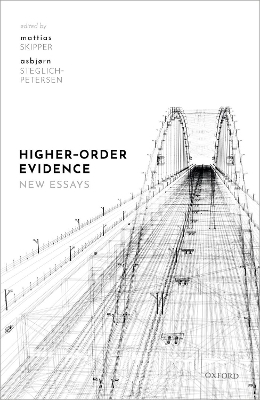
Higher-Order Evidence
Oxford University Press (Verlag)
978-0-19-882977-5 (ISBN)
We often have reason to doubt our own ability to form rational beliefs, or to doubt that some particular belief of ours is rational. Perhaps we learn that a trusted friend disagrees with us about what our shared evidence supports. Or perhaps we learn that our beliefs have been afflicted by motivated reasoning or by other cognitive biases. These are examples of higher-order evidence. While it may seem plausible that higher-order evidence should somehow impact our beliefs, it is less clear how and why. Normally, when evidence impacts our beliefs, it does so by virtue of speaking for or against the truth of theirs contents. But higher-order evidence does not directly concern the contents of the beliefs that they impact. In recent years, philosophers have become increasingly aware of the need to understand the nature and normative role of higher-order evidence. This is partly due to the pervasiveness of higher-order evidence in human life. But it has also become clear that higher-order evidence plays a central role in many epistemological debates, spanning from traditional discussions of internalism/externalism about epistemic justification to more recent discussions of peer disagreement and epistemic akrasia. This volume brings together, for the first time, a distinguished group of leading and up-and-coming epistemologists to explore a wide range of interrelated issues about higher-order evidence.
Mattias Skipper is a PhD Candidate in Philosophy at Aarhus University. He works mainly in epistemology, including formal and social epistemology, but also has interests in philosophical logic, philosophy of language and philosophy of science. His dissertation project aims to shed light on a number of issues concerning the normative role of higher-order evidence. Asbjørn Steglich-Petersen is Professor of Philosophy at Aarhus University. He has published widely in epistemology, philosophy of mind, metaphysics, and philosophy of language, with a major strand of work devoted to epistemic normativity and the nature of belief. He is the co-editor of Reasons for Belief (Cambridge 2011).
Mattias Skipper and Asbjørn Steglich-Petersen: Introduction
1: David Christensen: Formulating Independence
2: Kevin Dorst: Higher-Order Uncertainty
3: Anna-Maria A. Eder and Peter Brössel: Evidence of Evidence as Higher-Order Evidence
4: Daniel Greco: Fragmentation and Higher-Order Evidence
5: Sophie Horowitz: Predictably Misleading Evidence
6: Klemens Kappel: Escaping the Akratic Trilemma
7: Maria Lasonen-Aarnio: Higher-Order Defeat and Evincibility
8: Ram Neta: The Puzzles of Easy Knowledge and of Higher-Order Evidence: A Unified Solution
9: Mattias Skipper: Higher-Order Defeat and the Impossibility of Self-Misleading Evidence
10: Asbjørn Steglich-Petersen: Higher-Order Defeat and Doxastic Resilience
11: Michael G. Titelbaum: Return to Reason
12: Daniel Whiting: Whither Higher-Order Evidence?
13: Timothy Williamson: Evidence of Evidence in Epistemic Logic
14: Alex Worsnip: Can Your Total Evidence Mislead About Itself?
| Erscheinungsdatum | 18.10.2019 |
|---|---|
| Verlagsort | Oxford |
| Sprache | englisch |
| Maße | 161 x 235 mm |
| Gewicht | 622 g |
| Themenwelt | Geisteswissenschaften ► Philosophie ► Erkenntnistheorie / Wissenschaftstheorie |
| ISBN-10 | 0-19-882977-9 / 0198829779 |
| ISBN-13 | 978-0-19-882977-5 / 9780198829775 |
| Zustand | Neuware |
| Haben Sie eine Frage zum Produkt? |
aus dem Bereich

![Was heißt Denken?. Vorlesung Wintersemester 1951/52. [Was bedeutet das alles?] - Martin Heidegger](/media/113619842)
